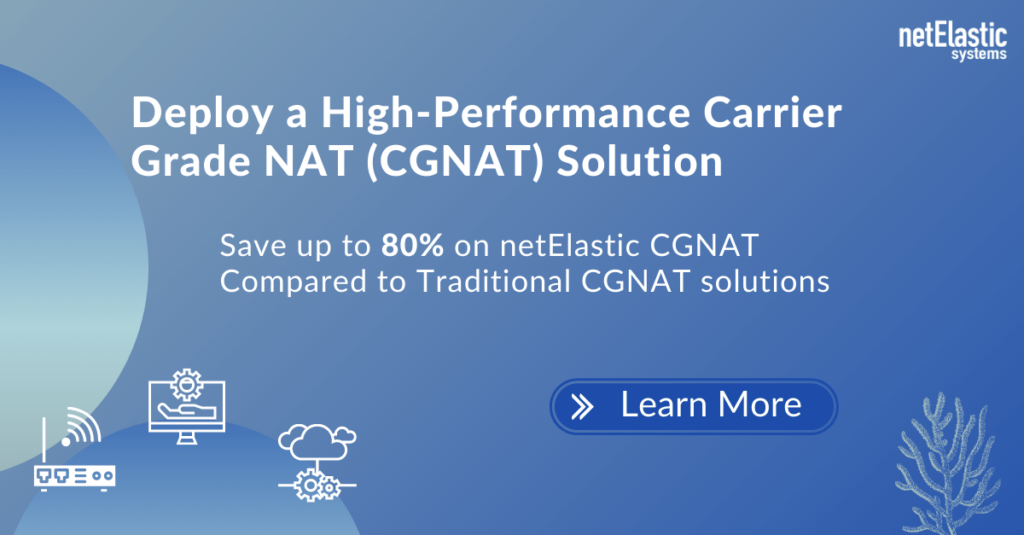Governments around the world are spending millions (and in some cases billions) of dollars to provide fast internet access for all citizens. As a result, broadband providers are expanding and/or building new networks to prepare for more subscribers.
The majority of government funding for broadband will go to building network infrastructure, such as deploying Fiber to the Home (FTTH) or wireless access. However, as broadband providers continue to add new subscribers, they’ll also need new IP addresses.
This presents a challenge.
IPv4 Exhaustion
There are 4.3 billion addresses supported by IPv4. This seemed like a lot when IPv4 was introduced in 1983. Of course, no one could have foreseen the rapid growth of the internet and internet-connected devices. Today, there are more internet users and internet-connected devices than there are IPv4 addresses.
IPv6 was developed to replace IPv4. And there are trillions upon trillions of IPv6 addresses. That’s the good news.
The bad news is IPv6 isn’t backward compatible with IPv4. As a result, IPv6 compatibility is required across every server, computer, and laptop connected to the network. Unfortunately, this means broadband providers must spend considerable amounts of time and money to upgrade (or purchase) new servers, routers, and switches for IPv6. The resulting high costs and complexity of migrating to IPv6 has led to the slow adoption of IPv6.
Where Can I Find Additional IPv4 Addresses?
As service providers build network infrastructure to accommodate more subscribers, where can they find additional IPv4 addresses? Well, there are no new IPv4 addresses; so many providers are buying existing IPv4 addresses.
The Economics of Purchasing IPv4 Addresses

A recent internet search showed IPv4 addresses can be bought for $35 – $55 dollars each.
Let’s do the math. If a broadband provider buys 2,000 IPv4 addresses (at a price of $40 per address), this would cost $80,000. If a provider bought 5,000 addresses, this would cost $200,000.
In addition to high costs, it’s estimated that 50 -60% of IPv4 addresses are on one or more IP reputation blacklists. Many providers may be tempted to pay the lowest price for IPv4 addresses. But these lower-cost IPv4 addresses usually have the highest percentage of tainted IPv4 addresses. In the long run, buying these addresses can be very costly.
CGNAT Helps Conserve IPv4 Addresses
By sharing a public IP address among many private IP addresses, Network Address Translation (NAT) limits the number of public IP addresses a service provider has to use, conserving its IPv4 addresses. As a result, NAT has become a must-have solution to prolong the use of IPv4 addresses and successfully transition to IPv6.
Carrier Grade Network Address Translation (CGNAT) is a large-scale NAT that translates private IPv4 addresses into public IPv4 addresses. CGNAT employs Network Address and Port Translation methods to aggregate multiple private IPv4 addresses into fewer public IPv4 addresses.
Which CGNAT Solution Should I Buy?
For large carriers with large budgets, finding CGNAT solutions with the most features and functions may be appropriate. There are CGNAT vendors that focus on providing specialized features and functions for large carriers. Of course, these premium features come at a premium price.
While appropriate for large carriers, these high-end CGNAT systems may not be feasible for smaller regional ISPs and WISPs.
An Affordable CGNAT
netElastic CGNAT is a cost-effective alternative to higher priced solutions. netElastic provides high-performance CGNAT services to extend the life of IPv4 address space, while also transitioning to IPv6.
Built on high-performance virtual router technology, netElastic delivers a high-level of translation performance while supporting a broad range of additional routing capabilities. And unlike traditional CGNAT systems that run on expensive proprietary hardware, netElastic CGNAT runs on commodity x86 servers. For service providers looking for an economical CGNAT, netElastic delivers unparalleled value with industry leading price/performance.
To learn more, please read the white paper: Can Implementing CGNAT be Easy and Affordable?


